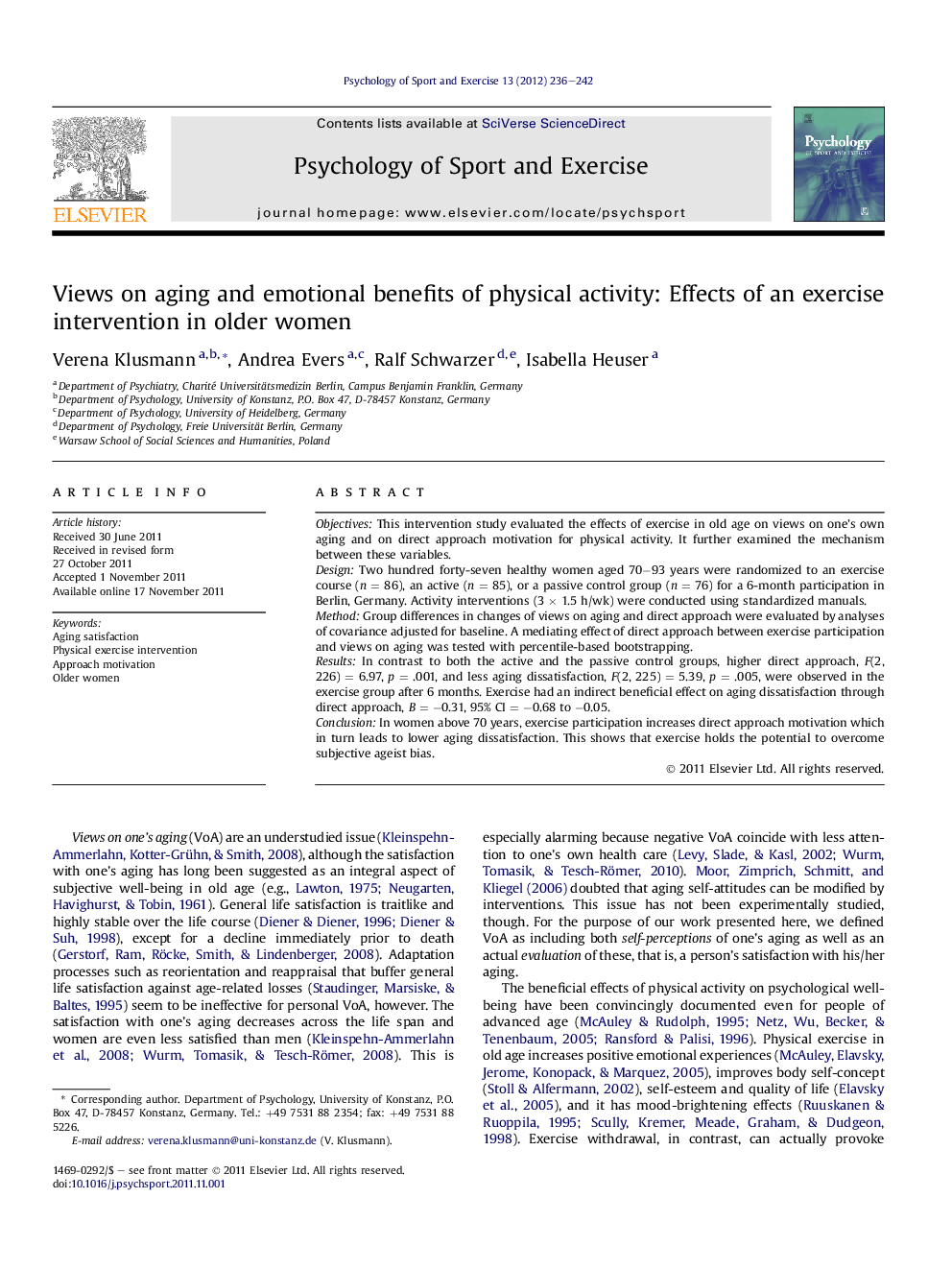| Article ID | Journal | Published Year | Pages | File Type |
|---|---|---|---|---|
| 894602 | Psychology of Sport and Exercise | 2012 | 7 Pages |
ObjectivesThis intervention study evaluated the effects of exercise in old age on views on one’s own aging and on direct approach motivation for physical activity. It further examined the mechanism between these variables.DesignTwo hundred forty-seven healthy women aged 70−93 years were randomized to an exercise course (n = 86), an active (n = 85), or a passive control group (n = 76) for a 6-month participation in Berlin, Germany. Activity interventions (3 × 1.5 h/wk) were conducted using standardized manuals.MethodGroup differences in changes of views on aging and direct approach were evaluated by analyses of covariance adjusted for baseline. A mediating effect of direct approach between exercise participation and views on aging was tested with percentile-based bootstrapping.ResultsIn contrast to both the active and the passive control groups, higher direct approach, F(2, 226) = 6.97, p = .001, and less aging dissatisfaction, F(2, 225) = 5.39, p = .005, were observed in the exercise group after 6 months. Exercise had an indirect beneficial effect on aging dissatisfaction through direct approach, B = −0.31, 95% CI = −0.68 to −0.05.ConclusionIn women above 70 years, exercise participation increases direct approach motivation which in turn leads to lower aging dissatisfaction. This shows that exercise holds the potential to overcome subjective ageist bias.
► This randomized controlled trial shows that physical exercise in old age buffers against aging dissatisfaction. ► Direct approach orientations elicited by physical exercise result in less negative views on one’s aging. ► This study delineates a valid views-on-aging factor by testing the construct of well-being in old age.
